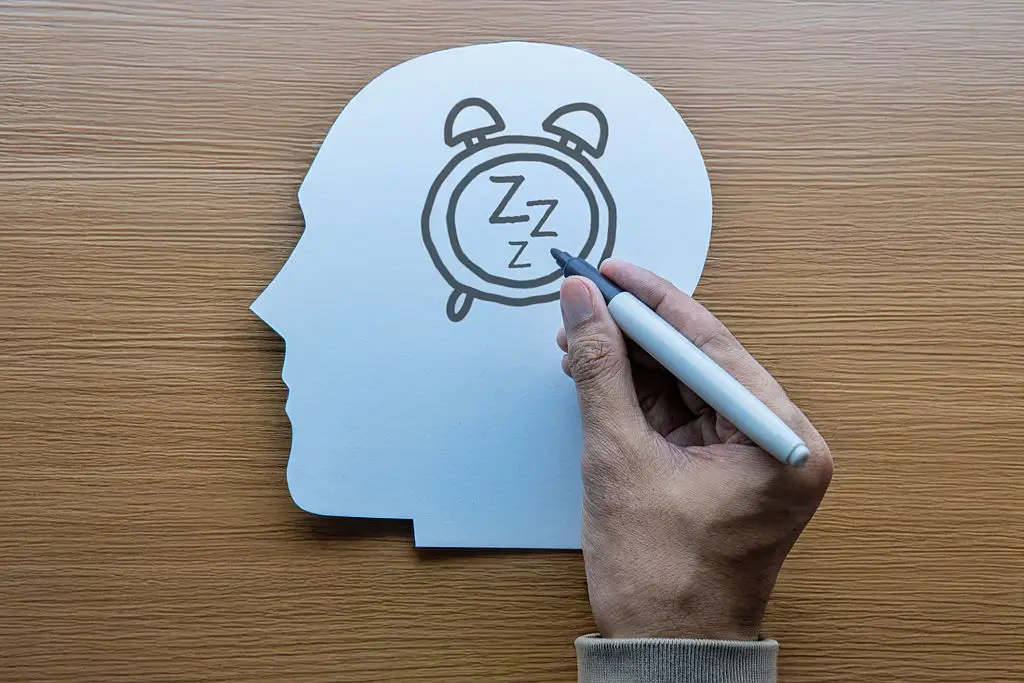10 Surprising Reasons You're Forgetting Things (and How to Fix It)
Ever forget the name of a favorite song or why you walked into a room? You’re in good company—the occasional memory slip is something nearly everyone experiences. But what if those lapses seem to happen more often, or for reasons you can’t quite put your finger on? The reality is, forgetfulness doesn’t always come down to stress, getting older, or a jam-packed schedule. Sometimes, the roots are surprisingly complex—and a little compassion goes a long way when addressing them. Rather than seeing each forgotten appointment or misplaced key as a sign of failure, it’s far kinder and more helpful to look a bit deeper. Many factors—medical, emotional, even the way you multitask or move through your day—can nudge your memory off course. Some have only recently started to gain attention from doctors and researchers. In this empowering guide, we’ll shine a light on ten unexpected reasons your memory could be faltering, plus gentle strategies to help you bounce back. Think of it as a friendly, judgment-free roadmap to clearer thinking—because understanding your mind is the first step toward nurturing it.
1. Post-Viral Brain Fog: How Recent Illness Clouds Your Mind

If you’ve felt mentally fuzzy after recovering from an illness—especially COVID—you’re not imagining things. Nearly one-third of people who have had COVID report lingering memory difficulties, attention problems, and what’s often described as “brain fog” for weeks or even months. According to board-certified neurologist Dr. Brigid Dwyer, inflammation in the brain can temporarily disrupt the way nerve cells communicate, making it tough to focus, recall information, or feel mentally sharp. This post-viral cognitive haze doesn’t mean you’re stuck with a foggy mind forever. Start by honoring your need for extra rest, both physically and mentally, as healing from illness is a holistic process. Gentle brain exercises—simple puzzles, reading, or tracking routines in a notebook—can help retrain cognitive pathways at your own pace. Don’t be afraid to reach out to your healthcare provider if memory issues persist; post-viral brain fog is a real and recognized condition, now deserving of tailored support rather than dismissal. Above all, be kind and patient with yourself as your mind regains its clarity.
2. Hidden Hormonal Shifts: The Memory-Mood Connection

Blanking on words or forgetting appointments isn’t just about getting older—hormones like estrogen and progesterone can play a big part. Over 60% of perimenopausal women describe fuzzy thinking, trouble focusing, and “tip-of-the-tongue” moments, but these shifts can also occur during menstruation and pregnancy. Hormone specialist Emma Zheng explains that estrogen helps regulate brain chemicals tied to memory, mood, and even how your brain uses glucose, its primary fuel. Rather than blaming yourself, recognize these changes as part of your body’s natural ebb and flow. Movement—especially resistance exercises—can be a game changer, supporting hormonal and brain health alike. Building in consistent sleep routines and aiming for balanced blood sugar with regular meals (think protein and fiber) can ease fluctuations and foster clear thinking. The bottom line? Memory highs and lows during hormonal swings aren’t a personal failing—they’re your nervous system adapting in real time. Be gentle as you ride the waves, and seek out small daily habits that restore your sense of balance.
3. Autoimmune Brain Fog: When Your Immune System Gets Distracted

Autoimmune conditions such as lupus are more than just physical—they can also cloud your thinking. “Lupus fog,” for example, describes confusion, forgetfulness, and trouble concentrating, all due to inflammation in the brain and nervous system. Dr. Brigid Dwyer highlights that this inflammation makes it harder for your mind to process and recall information, often leading to frustration and self-doubt. The first step to lifting the fog is acknowledging it’s not “just stress.” Tactics like using planners, color-coded calendars, or reminder apps can help bridge the gap on rough days. Mental exercises, such as word puzzles or reading for pleasure, give the brain gentle workouts to maintain key skills. Most importantly, work with a healthcare provider if you notice persistent memory changes alongside autoimmune symptoms—these are valid medical issues deserving thoughtful management, not just willpower. Remember, you’re navigating unique challenges; every small step to support your thinking is a quiet act of resilience.
4. Sleep Disorders Beyond Insomnia: The Quiet Thief of Memory

Poor sleep can do more than make you feel cranky—it can quietly chip away at your memory and mental clarity. Sleep disorders like insomnia, sleep apnea, restless legs syndrome, and narcolepsy each cause the brain to miss vital rest, reducing your ability to remember and process information. Research reveals that when you’re deprived of sleep, your neurons fire more sluggishly, and cognitive performance drops, sometimes dramatically. Reclaiming memory starts with prioritizing quality sleep. Keep to a consistent sleep and wake schedule—even on weekends—to train your body’s internal clock. Minimize phone or screen time an hour before bed, and turn your bedroom into a restful haven: cool, dark, and quiet. For those with ongoing sleep struggles, consider reaching out to a sleep specialist who can pinpoint and address underlying issues. Treating sleep as the foundation for both brain and body wellness can help restore your memory’s natural strength.
5. The Pitfall of Multitasking: Why Juggling Slows You Down

Ever scroll your phone while half-watching TV and answering emails? You might feel productive, but multitasking actually works against your memory’s best interests. Studies from the UK show that heavy multitaskers can see their IQ scores temporarily fall to the level of an eight-year-old. Imaging research demonstrates that those who juggle tasks constantly have less grey matter in brain regions crucial for memory. To give your mind a better shot at recall, practice the art of doing just one thing at a time. Try focusing fully on a single conversation, chore, or project—even five minutes of undivided attention makes a difference. Use tools like physical calendars, lists, or digital reminders to keep tasks organized and free your brain from juggling. Boundary-setting around device use or multitasking windows can gently retrain scattered attention. Fewer mental tabs open means more space for important memories to stick.
6. Chronic Fatigue Syndrome: When Tired Is an Understatement

For those living with Chronic Fatigue Syndrome (CFS or ME), forgetfulness is not just about feeling weary—it’s woven into the fabric of daily experience. Brain inflammation in CFS means your mind is battling for clarity, even on days when you look fine from the outside. Too often, people with chronic fatigue hear their struggle dismissed as laziness, when it’s actually rooted in deeply physical processes. Coping with memory fog here is an act of self-compassion. Gentle pacing, choosing restful activities, and celebrating each small win are fundamental. Approaches like meditation, yoga, or light stretching can help rebalance the mind-body connection. Some people benefit from therapy or support groups, where practical strategies and encouragement flow freely. Remember, you’re allowed to move through days at your own speed—every patient step serves as proof of your strength, not a measure of your shortcomings.
7. Medication Side Effects: The Hidden Impact on Recall

Did you know that the solution to one health issue might be quietly undermining your memory? Many medications—ranging from common antihistamines to certain antidepressants, sleep aids, and blood pressure drugs—can make recall tougher. They may interfere with the brain’s chemical messengers, making information harder to access when you need it most. Don’t accept memory changes as an automatic part of every prescription. Start by keeping a medication journal: jot down memory lapses, then look for patterns with your healthcare provider. Sometimes a minor adjustment, alternative medication, or additional support can ease cognitive side effects. Never stop a prescribed medication without medical advice, but be your own advocate—your brain deserves as much well-being as the rest of your body. Open conversations with a trusted provider can bring relief and reassurance.
8. Hidden Nutritional Gaps: How Deficiencies Drain Focus

Food fuels your ability to remember—from recalling a loved one’s birthday to tackling new skills at work. When key nutrients like vitamin B12, D, iron, or omega-3s are missing, mental fog, sluggishness, and forgetfulness can swiftly follow. This risk climbs for older adults, vegans, or anyone with absorption conditions—group who may not get enough through diet alone. The path to clarity often begins with a nutritional assessment from your healthcare provider. Adding nutrient-rich whole foods—think leafy greens, nuts, eggs, fish—can help rebuild brain reserves. For some, supplements may be recommended to target specific gaps, but avoid self-diagnosing: professional guidance ensures you’re getting exactly what your mind and body require. With each balanced meal, you’re supporting sharper recall and a more vibrant sense of self.
9. Emotional Overload: When Stress and Anxiety Hijack Recall

When life feels emotionally crowded—whether due to ongoing stress, big changes, anxiety, or grief—memory can become one of the first things to stumble. Stress activates the “fight or flight” response, drawing resources away from the brain’s memory centers and making it harder to form or retrieve new memories. You might notice names slip away, dates feel out of reach, or details blur together after a tough day. Supporting your brain under pressure starts by recognizing that emotional load isn’t a sign of weakness. Gentle stress management tools—like mindfulness practices, talking with a supportive friend or counselor, or building comfort into routines—help calm the nervous system and give memory a chance to recover. Even a few minutes of slow breathing or a walk outdoors can soften cognitive overwhelm. Progress is rarely linear, but each act of self-care helps restore space for memories to flourish.
10. Overloaded Senses: Why Too Much Input Hinders Memory

Our brains are designed to handle a steady flow of information, but in a world of nonstop notifications, background noise, and bright screens, sensory overload is more common than ever. When your senses are maxed out, your working memory—where new information is held before storing or forgetting—gets spread thin. This can make it tough to memorize, focus, or hold onto details. Creating even small quiet spaces in your day brings welcome relief. Step away from screens, use earplugs if needed, or take walks where your mind can wander without constant input. Try setting intentional tech-free “memory breaks,” or designate times when you allow your mind to process and recharge. Protecting your focus in a busy world is a radical act of care, and your brain will thank you for the occasional pause.
Wrapping Up: Gentle Strategies for a Sharper Memory

Forgetfulness is a complex, deeply human experience—and it’s woven through the rhythms of modern life. The surprising causes we’ve explored remind us that memory loss isn’t about personal shortcomings or willpower; it reflects a beautiful, multifaceted interplay between mind, body, and environment. You might resonate with one, several, or many of these reasons—and that’s a sign of how individualized memory truly is. The path forward is neither rigid nor overwhelming. Real progress stems from small, sustainable shifts: taking a restorative pause after illness, building gentle daily routines, nourishing your mind with wholesome foods, or offering yourself understanding on especially cloudy days. In each act of self-kindness, you’re supporting vibrant cognitive health for years to come. Your memories, like your wellness journey, are uniquely yours to nurture—one mindful, compassionate step at a time.
